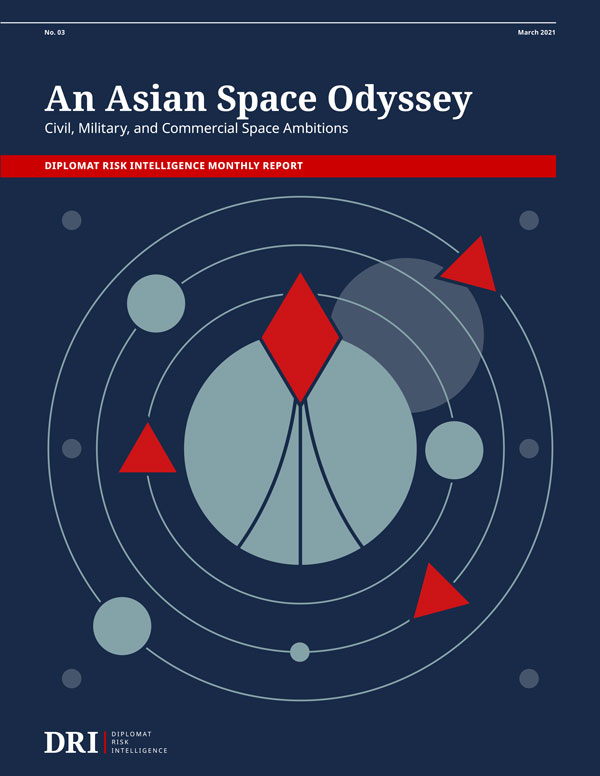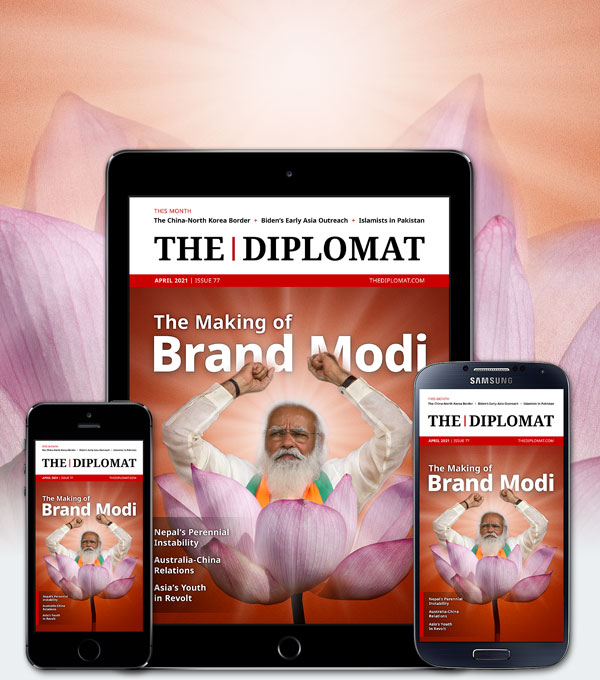| Welcome to the latest issue of Diplomat Brief. This week our top story looks at the fact and fictions of the China-Iran 25-year strategic partnership deal. We also have an interview with Chi Wang, former head of the U.S. Library of Congress’ Chinese and Korean sections, about his experiences as a Chinese American living in the U.S. since 1949. |
| Story of the week |  | DIPLOMACY China-Iran Relations: The Myth of Massive InvestmentWhat Happened: On March 26, with China and Iran signed a 25-year Strategic Cooperation Agreement. Many media outlets described the deal as a massive overhaul of Sino-Iranian relations, including a whopping $400 (or $600 or $800…) billion in Chinese investment. The problem: the deal doesn’t actually promise anything of the sort. Our Focus: “Is there an expansion of Sino-Iranian relations in the works? Yes, and it is significant. It will see increased investment and linkages between the countries,” writes Dr. William Figueroa, a specialist on China-Iran relations. “But there are no specifics, no indication of $400 billion worth of investment forthcoming, and no indication of unprecedented military cooperation or Chinese troops being stationed in Iran.” What Comes Next: The Strategic Cooperation Agreement, as both China and Iran admitted, contains no specific deals or commitments; it is entirely aspirational and non-binding. The next few years will be crucial for actually fleshing out just how impactful the shift in China-Iran relations will be. For now, the relationship will continue to be limited by progress in Iran-U.S. relations, given the impact of U.S. sanctions. Read this story |
| Behind the News | INTERVIEW Chi WangChi Wang, founder and president of the U.S.-China Policy Foundation and former head of the U.S. Library of Congress’ Chinese and Korean section: “As mistrust toward China and the Chinese government grew, I also witnessed a growing mistrust toward Chinese Americans… The past year has seen anti-Asian racism grow to levels I don’t think I have ever experienced before, at least not in such open and violent ways.” Read the interview |
| This Week in Asia | Northeast Asia South Korea’s Mayor By-Elections Preview Presidential RaceOn April 7, Seoul and Busan will pick new mayors. Both cities were previously governed by the Democratic Party of President Moon Jae-in; polls suggest that both will be lost to candidates from the opposition People Power Party, after a land speculation scandal badly damaged the DP’s image. The by-elections in South Korea’s two largest cities by population will shape early projections of the March 2022 presidential election. Find out more | South Asia Russian Foreign Minister Visits India and PakistanRussian Foreign Minister Sergei Lavrov visited New Delhi on a two-day trip beginning April 5, following which he flew to Pakistan. Lavrov's India visit came amid growing Russian interest and footprint both to India’s east and west, a development New Delhi ought to carefully manage even as it deepens security ties with the United States and allied partners. Meanwhile, Moscow continues to cultivate Islamabad as it shrewdly assesses the need to keep Pakistan onboard in securing a post-American future for Afghanistan – and one that is conducive to Russian interests. Find out more | Southeast Asia South China Sea Tensions IncreaseThe Philippines and China continue to exchange fusillades of accusations over the presence of more than 200 Chinese “fishing boats” (read: maritime militia vessels) at Union Banks in the disputed Spratly Islands. The vessels have been present in the area for nearly three weeks, but the standoff shows no signs of a quick resolution, with the Chinese state mouthpiece Global Times warning of a “strong response” if the Philippines “acts rashly.” Find out more | Central Asia Election Day, Again, in KyrgyzstanOn April 11, Kyrgyz will head to the polls for an unusually high number of local council elections. At the same time, Kyrgyz will be able to vote (or avoid voting) in a referendum on a new, and controversial, constitution. Six months after the disastrous parliamentary polls of October 2020 the Kyrgyz political arena is far from settled. Find out more |
| Visualizing APAC |  | Since the introduction of the Belt and Road Initiative in 2013, China’s share of all imports from Central Asia has actually declined – while its exports to the region have gone up. See the full picture |
|  |





